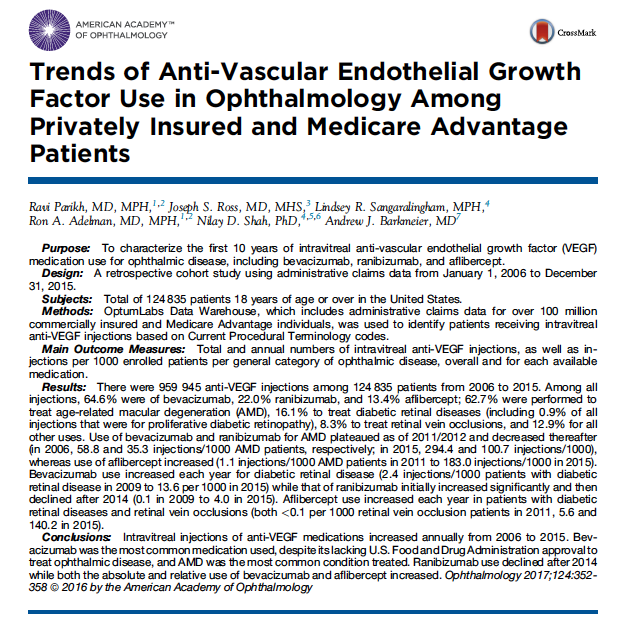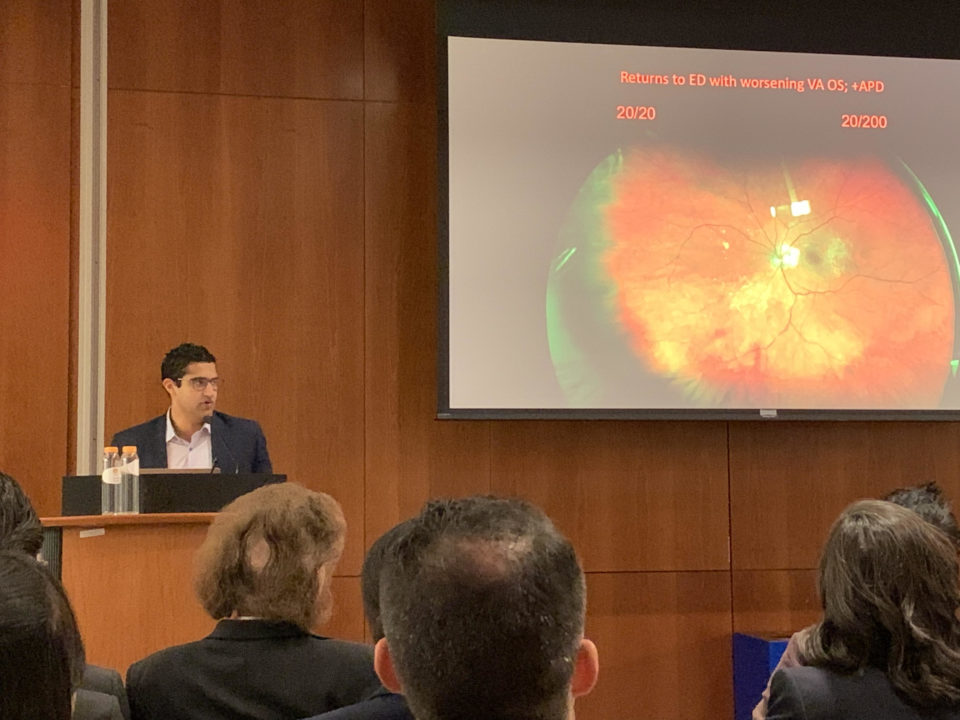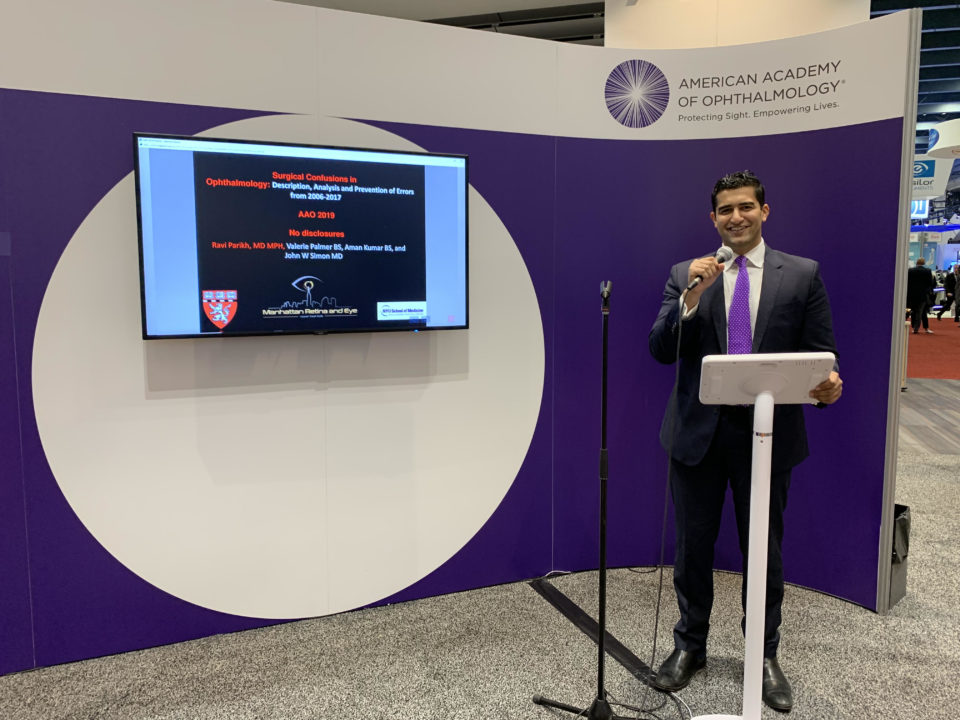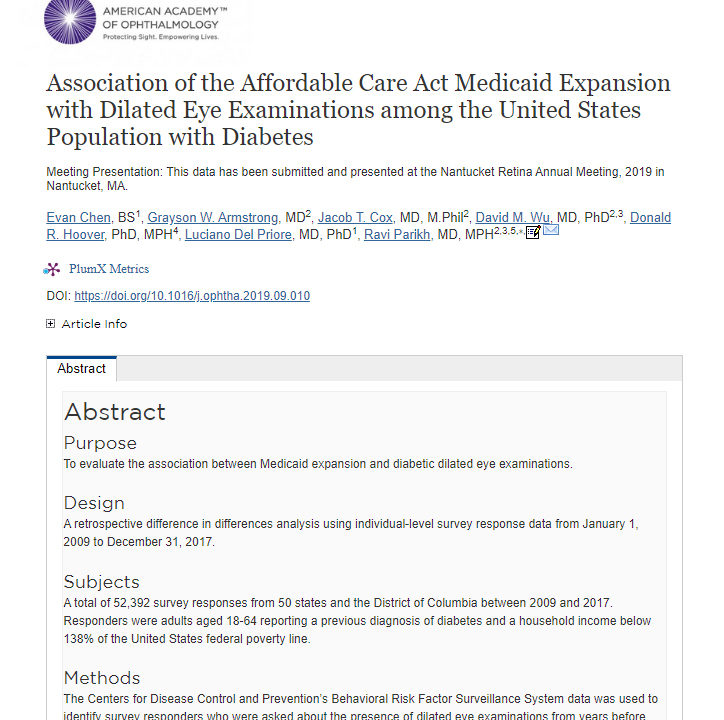
Seven Private Practice Physicians Win Support for Big Data Projects to Benefit Their Patients
October 7, 2019
Furthering his studies in studying anti-VEGF injections
October 7, 2019Dr. Parikh is an expert on using intravitreal anti-vascular endothelial injections in ophthalmology for diseases such as Age related Macular Degeneration, Diabetic Retinal Diseases, Retinal Vein Occlusions, and other neovascular retinal diseases. He has published the largest study to date in Ophthalmology (the leading clinical journal in the field) on the use of injections across all diagnoses in ophthalmology.
PURPOSE:
To characterize the first 10 years of intravitreal anti-vascular endothelial growth factor (VEGF) medication use for ophthalmic disease, including bevacizumab, ranibizumab, and aflibercept.
DESIGN:
A retrospective cohort study using administrative claims data from January 1, 2006 to December 31, 2015.
SUBJECTS:
Total of 124 835 patients 18 years of age or over in the United States.
METHODS:
OptumLabs Data Warehouse, which includes administrative claims data for over 100 million commercially insured and Medicare Advantage individuals, was used to identify patients receiving intravitreal anti-VEGF injections based on Current Procedural Terminology codes.
MAIN OUTCOME MEASURES:
Total and annual numbers of intravitreal anti-VEGF injections, as well as injections per 1000 enrolled patients per general category of ophthalmic disease, overall and for each available medication.
RESULTS:
There were 959 945 anti-VEGF injections among 124 835 patients from 2006 to 2015. Among all injections, 64.6% were of bevacizumab, 22.0% ranibizumab, and 13.4% aflibercept; 62.7% were performed to treat age-related macular degeneration (AMD), 16.1% to treat diabetic retinal diseases (including 0.9% of all injections that were for proliferative diabetic retinopathy), 8.3% to treat retinal vein occlusions, and 12.9% for all other uses. Use of bevacizumab and ranibizumab for AMD plateaued as of 2011/2012 and decreased thereafter (in 2006, 58.8 and 35.3 injections/1000 AMD patients, respectively; in 2015, 294.4 and 100.7 injections/1000), whereas use of aflibercept increased (1.1 injections/1000 AMD patients in 2011 to 183.0 injections/1000 in 2015). Bevacizumab use increased each year for diabetic retinal disease (2.4 injections/1000 patients with diabetic retinal disease in 2009 to 13.6 per 1000 in 2015) while that of ranibizumab initially increased significantly and then declined after 2014 (0.1 in 2009 to 4.0 in 2015). Aflibercept use increased each year in patients with diabetic retinal diseases and retinal vein occlusions (both <0.1 per 1000 retinal vein occlusion patients in 2011, 5.6 and 140.2 in 2015).
CONCLUSIONS:
Intravitreal injections of anti-VEGF medications increased annually from 2006 to 2015. Bevacizumab was the most common medication used, despite its lacking U.S. Food and Drug Administration approval to treat ophthalmic disease, and AMD was the most common condition treated. Ranibizumab use declined after 2014 while both the absolute and relative use of bevacizumab and aflibercept increased.
Related posts







